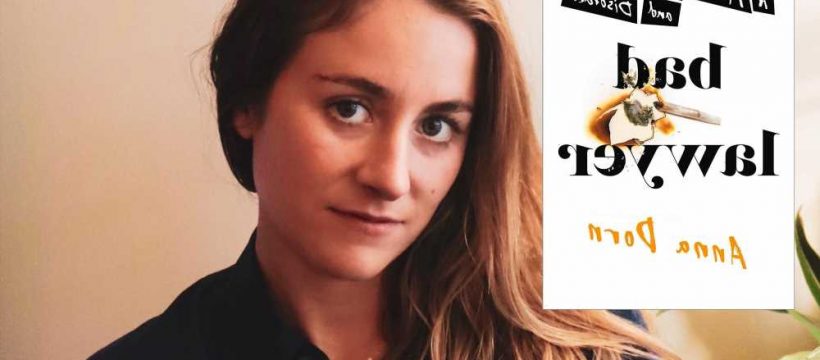More On:
book review
Gina Tron’s ‘Employment’ turns the 9-5 grind into poetry
Author reveals how his brother murdered their mother in moving new memoir
NYC EMT Jennifer Murphy spills her guts with memoir ‘First Responder’
Pony-loving girls will be hot to trot for new book ‘Horse Girl’
A few years ago, Anna Dorn was a criminal defense attorney. One afternoon, she stopped for a drink with friends and left her client’s rap sheet behind in a German-style biergarten. “Festive, but not the best environment for a confidential document,” she writes. “Soon after I left, the barmaid came running after me, frantically waving my juvenile client’s rap sheet in the golden afternoon light.”
“Wow,” Dorn thought to herself. “I really am a bad lawyer.”
And just like that, the idea for her new memoir, “Bad Lawyer: A Memoir of Law and Disorder” (Hachette Books), out May 4, was born. Dorn, a graduate of UC Berkeley Law School, eventually left the profession to become an author. But not before she had plenty of time to witness the profession up close — and all of its many shortcomings.
“I’ve seen prosecutors lie and file briefs so lazy their reasoning is, ‘The defendant is guilty because he is not innocent,’ ” she writes. “I’ve seen judges sipping on bourbon in chambers and perusing auctions on eBay instead of listening to homicide testimony.”
It’s also a look at an industry that seems well overdue for a reckoning.
“Law just feels really stuck in another era. Two of my bosses were accused of sexual misconduct. Another boss bought me $500 worth of makeup and said I had to wear it if I wanted to be taken seriously,” she says. “At Berkeley Law, they circulated a leaflet about appropriate interview attire that said curly hair was ‘unacceptable’; women had to straighten their hair, and the only acceptable jewelry was a pearl necklace. In Virginia, there’s a strict dress code to take the bar. You have to wear a skirt suit and heels — just to take the test!”
The book also discusses the many ways in which inequity seemed baked into the system.
“I saw the way the judges favored educated white people who spoke the way lawyers are taught to speak …” she writes of her time in misdemeanor court. “Whenever a witness revealed a poor grasp of white English, the judge tended to find him or her less credible. I don’t think they were aware they were doing it, but it was painfully obvious as an outsider.”
What advice would she give if a young friend were to tell her they were interested in law?
“I tell people not to go to law school unless they want to be a corporate lawyer or if law school is being paid for [by someone else]. If you’re taking on any debt, a corporate job is the only job you can take,” she says. “I suggest that they take the Kim Kardashian route. Work as a paralegal and then take the bar. You get paid, you take the bar, and then you probably would have a job. The bar is more rigorous than law school.”
Share this article:
Source: Read Full Article
